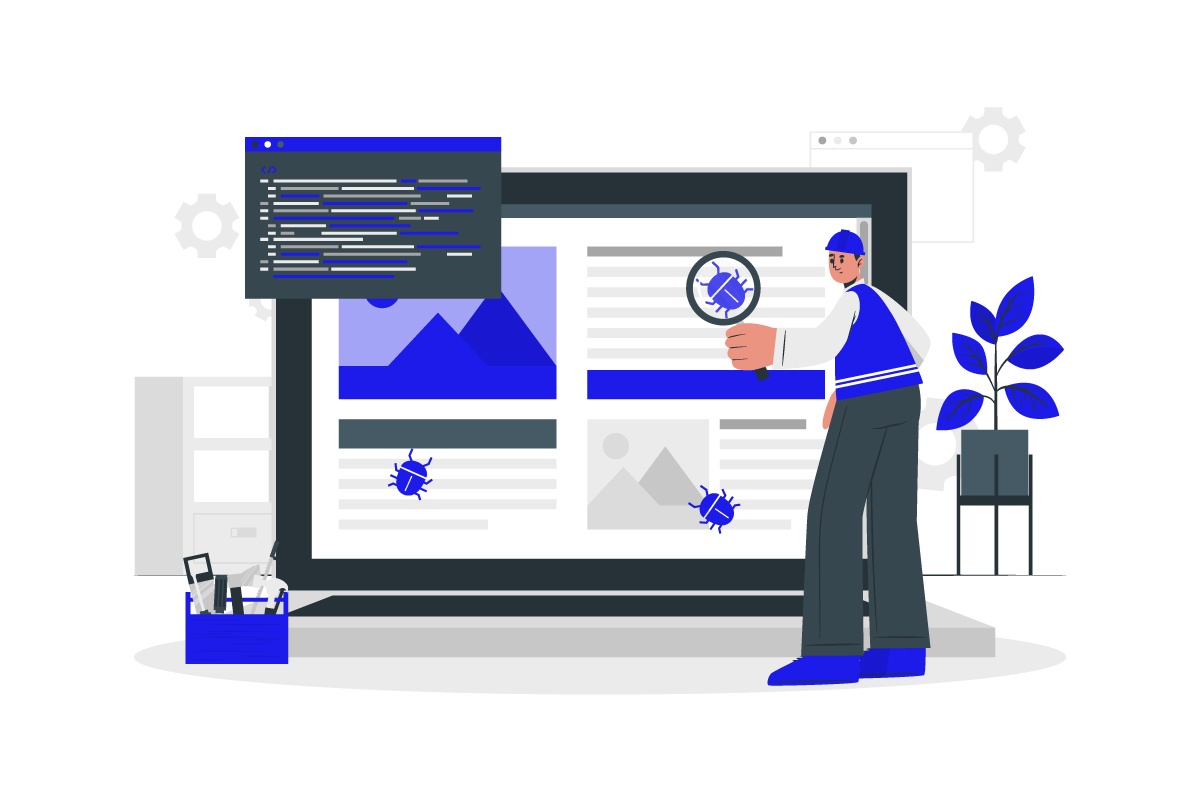SERVICE OVERVIEW
Embrace the Ecosystem Economy
Unleash the value of your digital ecosystem to create superior customer experiences and drive business innovation securely and cost-effectively with an API strategy.
Integration Readiness as a Driver of Business Agility
In order to realize the benefits of integration, it is essential to develop an API strategy that prioritizes business value.
Our approach begins by conducting an integration readiness assessment, ensuring that internal APIs align with business objectives, endpoints are rationally bundled and are actively managed from a product and service perspective.
Developer engagement plays a pivotal role in successful API strategies.
Our model prioritizes engaging your target audience effectively. We ensure that accessing and utilizing APIs becomes seamless for your developer community.
Before suggesting a way forward, we thoroughly examine your target developers’ tool requirements and ensure compatibility and integration possibilities.
As your business evolves, APIs should evolve and adapt accordingly.
Keeping this in mind, we assist you in choosing an API management solution that aligns with your organizational culture, supports the API strategy, seamlessly integrates into your existing architecture, and empowers your developers with advanced technology for efficient operations, scalability, and reusable asset delivery.
For an API strategy to be successful , it is necessary to establish it as an enterprise capability.
Our expertise lies in seamlessly integrating the API management solution with your existing enterprise systems and business functions. Our implementation encompasses essential functionalities like API analytics and reporting, robust security measures, and efficient building and management of API infrastructure and operations.
Full Lifecycle API Management
Effective lifecycle management maximizes API value and agility. Blanc Labs’ full lifecycle API management encompasses the entire journey of an API, from design and development to deployment, monitoring, and retirement.
Create API specifications, secure and publish APIs, manage access and usage, analyze performance, and ensure seamless integration and evolution with our API management platforms.
Key Features of API Management Platforms
Blanc Labs are experts in implementing and configuring centralized platforms that provide developers with resources, documentation, tools, and interactive interfaces to facilitate the discovery, exploration, and utilization of APIs. Designed to enhance developer experience, foster collaboration, and enable seamless integration by offering comprehensive API documentation, code samples, tutorials, and community support.
Our unified API platform offers robust security measures, using access tokens, HTTPS, and security protocols, to ensure secure and reliable communication between clients and APIs, preventing unauthorized access, data breaches, and malicious attacks. Use prescribed quotas and rate limits to control traffic to back-end services, reducing denial-of-service attacks.
Leading API Gateway tools handle request routing, authentication, and authorization. Technology teams and ecosystem partners benefit from API-enabled protocol translation, data transformation, caching, and logging. Improve performance and facilitate integration with back-end services.
Platforms such as Axway and Mulesoft provide powerful analytics capabilities to Monitor and record the consumption patterns and metrics associated with API calls. Track the number of requests, response times, error rates, and usage limits. Gain insights into usage patterns, identify performance bottlenecks, and ensure the scalability and reliability of your APIs.
API Management platforms bring API management full circle. Turn them from a technology enabler to a business driver. Organizations can offer tiered pricing plans or subscriptions based on usage patterns. Monetize APIs effectively while offering flexibility and value to customers.
What Our Clients Say


When clients send their bank statements directly to us by email, they’re sending them in PDF format—which requires manual work to process and to review for inconsistencies.


We use the Statement Share tool, created by Blanc Labs using Flinks APIs, at deal origination. There are various use cases for us, but the tool is a crucial part of our verification process that assesses whether what borrowers have stated in their applications is true. Thanks to the API, we are seeing statements and factual data directly from their banks.
 and
and 
Setting a New Standard for Mortgage Origination using APIs

Setting a New Standard for Mortgage Origination using APIs
Blanc Labs was instrumental in overhauling Equitable Bank’s mortgage origination process through our integration of Flinks’ Data Aggregation and Connectivity tools.
API Management Insights
Lenders Transformation Playbook: Bridging Strategy and Execution
AI’s Mid-Market Makeover in Financial Services

Mid-sized financial services institutions (FIs) are facing significant challenges during this period of rapid technological change, particularly with the rise of artificial intelligence (AI). As customer expectations grow, smaller banks and lenders must stay competitive and responsive. Canada’s largest financial institutions are already advancing in AI, while many others remain in ‘observer’ mode, hesitant to invest and experiment. Yet, mid-sized FIs that adopt the right strategy have unique agility, allowing them to adapt swiftly and efficiently to technological disruptions—even more so than their larger counterparts.
Process Improvement and Automation Support the Mission at Trez Capital 🚀

Trez distributes capital based on very specific criteria. But with over 300 investments in their portfolio, they process numerous payment requests and deal with documents in varied data formats. They saw an opportunity to enhance efficiency, improve task management, and better utilize data insights for strategic decision-making.
Align, Assemble, Assure: A Framework for AI Adoption

An in-depth guide for adopting and scaling AI in the enterprise using actionable and measurable steps.
Blanc Labs Welcomes Two New Leaders to Advance AI Innovation and Enhance Tech Advisory Services for Financial Institutions Across North America

Blanc Labs and TCG Process have partnered to transform lending operations with innovative automation solutions, using the DocProStar platform to enhance efficiency, compliance, and customer satisfaction in the Canadian lending market.
Blanc Labs Partners with TCG Process to Integrate their Automation and Orchestration Platform and deliver Advanced Intelligent Workflow Automation to Financial Institutions

Blanc Labs and TCG Process have partnered to transform lending operations with innovative automation solutions, using the DocProStar platform to enhance efficiency, compliance, and customer satisfaction in the Canadian lending market.
BPI in Banking and Financial Services in the US & Canada

Banking and financial services are changing fast. Moving from old, paper methods to new, digital ones is key to staying in business. It’s important to think about how business process improvement (BPI) can help.
Business Process Improvement vs Business Process Reengineering

Business process improvement vs. reengineering is a tough choice. In this guide, we help you choose between the two based on four factors.
What is the role of a Business Process Improvement Specialist?

A business process improvement specialist identifies bottlenecks and inefficiencies in your workflows, allowing you to focus efforts on automating the right processes.
Open Banking Technology Architecture Whitepaper

We’ve developed this resource to help technical teams adopt an Open Banking approach by explaining a high-level solution architecture that is organization agnostic.
Winning the Open Banking Race: A Challenger’s Path to Entering the Ecosystem Economy

Learn about the steps you can take in forming an open banking strategy and executing on it.
Canadian IT services firms offer a strategic opportunity for US Banks and FIs

Discover the strategic advantage for U.S. banks embracing innovation with cost-effective Canadian nearshore IT support.
These are not your grandmother’s models: the impact of LLM’s on Document Processing

Explore the transformative influence of large language models (LLMs) on document processing in this insightful article. Discover how these cutting-edge models are reshaping traditional approaches, unlocking new possibilities in data analysis, and revolutionizing the way we interact with information.
From Chaos to Clarity: Achieving Operational Excellence through Business Process Improvement

Discover transformative insights and strategies to streamline operations, enhance efficiency, and drive success.
10 Tips to Successfully Implement RPA in Finance
5 Benefits of Open Banking APIs
5 Factors to Evaluate Open Banking Readiness in Canada
4 Ways APIs Can Improve Your Bank
4 Ways to Avoid A Failed Automation Journey
Lenders Transformation Playbook: Bridging Strategy and Execution
AI’s Mid-Market Makeover in Financial Services

Mid-sized financial services institutions (FIs) are facing significant challenges during this period of rapid technological change, particularly with the rise of artificial intelligence (AI). As customer expectations grow, smaller banks and lenders must stay competitive and responsive. Canada’s largest financial institutions are already advancing in AI, while many others remain in ‘observer’ mode, hesitant to invest and experiment. Yet, mid-sized FIs that adopt the right strategy have unique agility, allowing them to adapt swiftly and efficiently to technological disruptions—even more so than their larger counterparts.
Process Improvement and Automation Support the Mission at Trez Capital 🚀

Trez distributes capital based on very specific criteria. But with over 300 investments in their portfolio, they process numerous payment requests and deal with documents in varied data formats. They saw an opportunity to enhance efficiency, improve task management, and better utilize data insights for strategic decision-making.
Align, Assemble, Assure: A Framework for AI Adoption

An in-depth guide for adopting and scaling AI in the enterprise using actionable and measurable steps.
Blanc Labs Welcomes Two New Leaders to Advance AI Innovation and Enhance Tech Advisory Services for Financial Institutions Across North America

Blanc Labs and TCG Process have partnered to transform lending operations with innovative automation solutions, using the DocProStar platform to enhance efficiency, compliance, and customer satisfaction in the Canadian lending market.
Blanc Labs Partners with TCG Process to Integrate their Automation and Orchestration Platform and deliver Advanced Intelligent Workflow Automation to Financial Institutions

Blanc Labs and TCG Process have partnered to transform lending operations with innovative automation solutions, using the DocProStar platform to enhance efficiency, compliance, and customer satisfaction in the Canadian lending market.
BPI in Banking and Financial Services in the US & Canada

Banking and financial services are changing fast. Moving from old, paper methods to new, digital ones is key to staying in business. It’s important to think about how business process improvement (BPI) can help.
Business Process Improvement vs Business Process Reengineering

Business process improvement vs. reengineering is a tough choice. In this guide, we help you choose between the two based on four factors.
What is the role of a Business Process Improvement Specialist?

A business process improvement specialist identifies bottlenecks and inefficiencies in your workflows, allowing you to focus efforts on automating the right processes.
Open Banking Technology Architecture Whitepaper

We’ve developed this resource to help technical teams adopt an Open Banking approach by explaining a high-level solution architecture that is organization agnostic.
Winning the Open Banking Race: A Challenger’s Path to Entering the Ecosystem Economy

Learn about the steps you can take in forming an open banking strategy and executing on it.
Canadian IT services firms offer a strategic opportunity for US Banks and FIs

Discover the strategic advantage for U.S. banks embracing innovation with cost-effective Canadian nearshore IT support.
These are not your grandmother’s models: the impact of LLM’s on Document Processing

Explore the transformative influence of large language models (LLMs) on document processing in this insightful article. Discover how these cutting-edge models are reshaping traditional approaches, unlocking new possibilities in data analysis, and revolutionizing the way we interact with information.
From Chaos to Clarity: Achieving Operational Excellence through Business Process Improvement

Discover transformative insights and strategies to streamline operations, enhance efficiency, and drive success.
10 Tips to Successfully Implement RPA in Finance
5 Benefits of Open Banking APIs
5 Factors to Evaluate Open Banking Readiness in Canada
4 Ways APIs Can Improve Your Bank
4 Ways to Avoid A Failed Automation Journey
Lenders Transformation Playbook: Bridging Strategy and Execution
AI’s Mid-Market Makeover in Financial Services

Mid-sized financial services institutions (FIs) are facing significant challenges during this period of rapid technological change, particularly with the rise of artificial intelligence (AI). As customer expectations grow, smaller banks and lenders must stay competitive and responsive. Canada’s largest financial institutions are already advancing in AI, while many others remain in ‘observer’ mode, hesitant to invest and experiment. Yet, mid-sized FIs that adopt the right strategy have unique agility, allowing them to adapt swiftly and efficiently to technological disruptions—even more so than their larger counterparts.
Process Improvement and Automation Support the Mission at Trez Capital 🚀

Trez distributes capital based on very specific criteria. But with over 300 investments in their portfolio, they process numerous payment requests and deal with documents in varied data formats. They saw an opportunity to enhance efficiency, improve task management, and better utilize data insights for strategic decision-making.
Align, Assemble, Assure: A Framework for AI Adoption

An in-depth guide for adopting and scaling AI in the enterprise using actionable and measurable steps.
Blanc Labs Welcomes Two New Leaders to Advance AI Innovation and Enhance Tech Advisory Services for Financial Institutions Across North America

Blanc Labs and TCG Process have partnered to transform lending operations with innovative automation solutions, using the DocProStar platform to enhance efficiency, compliance, and customer satisfaction in the Canadian lending market.
Blanc Labs Partners with TCG Process to Integrate their Automation and Orchestration Platform and deliver Advanced Intelligent Workflow Automation to Financial Institutions

Blanc Labs and TCG Process have partnered to transform lending operations with innovative automation solutions, using the DocProStar platform to enhance efficiency, compliance, and customer satisfaction in the Canadian lending market.
BPI in Banking and Financial Services in the US & Canada

Banking and financial services are changing fast. Moving from old, paper methods to new, digital ones is key to staying in business. It’s important to think about how business process improvement (BPI) can help.
Business Process Improvement vs Business Process Reengineering

Business process improvement vs. reengineering is a tough choice. In this guide, we help you choose between the two based on four factors.
What is the role of a Business Process Improvement Specialist?

A business process improvement specialist identifies bottlenecks and inefficiencies in your workflows, allowing you to focus efforts on automating the right processes.
Open Banking Technology Architecture Whitepaper

We’ve developed this resource to help technical teams adopt an Open Banking approach by explaining a high-level solution architecture that is organization agnostic.
Winning the Open Banking Race: A Challenger’s Path to Entering the Ecosystem Economy

Learn about the steps you can take in forming an open banking strategy and executing on it.
Canadian IT services firms offer a strategic opportunity for US Banks and FIs

Discover the strategic advantage for U.S. banks embracing innovation with cost-effective Canadian nearshore IT support.
These are not your grandmother’s models: the impact of LLM’s on Document Processing

Explore the transformative influence of large language models (LLMs) on document processing in this insightful article. Discover how these cutting-edge models are reshaping traditional approaches, unlocking new possibilities in data analysis, and revolutionizing the way we interact with information.
From Chaos to Clarity: Achieving Operational Excellence through Business Process Improvement

Discover transformative insights and strategies to streamline operations, enhance efficiency, and drive success.
10 Tips to Successfully Implement RPA in Finance
5 Benefits of Open Banking APIs
5 Factors to Evaluate Open Banking Readiness in Canada
4 Ways APIs Can Improve Your Bank
4 Ways to Avoid A Failed Automation Journey
FAQs
What are API management services?
API management services offer diverse solutions to cover API design, security, access control, rate limiting, analytics, developer portals, and integration. These services streamline the API lifecycle, ensuring seamless integration, security, and performance for consumers.
What is an example of API management?
An example of API management is using an API management service such as MuleSoft or Apigee, to create, publish, control access to, and analyze usage of APIs so a business can ensure secure and efficient interactions between different software systems.
Why do organizations need API management services?
API management services enable organizations to effectively manage APIs with centralized control, security, and scalability, streamlining operations, monitoring performance, enforcing security policies, and enhancing developer experience to drive innovation and seamless integration with external partners.





